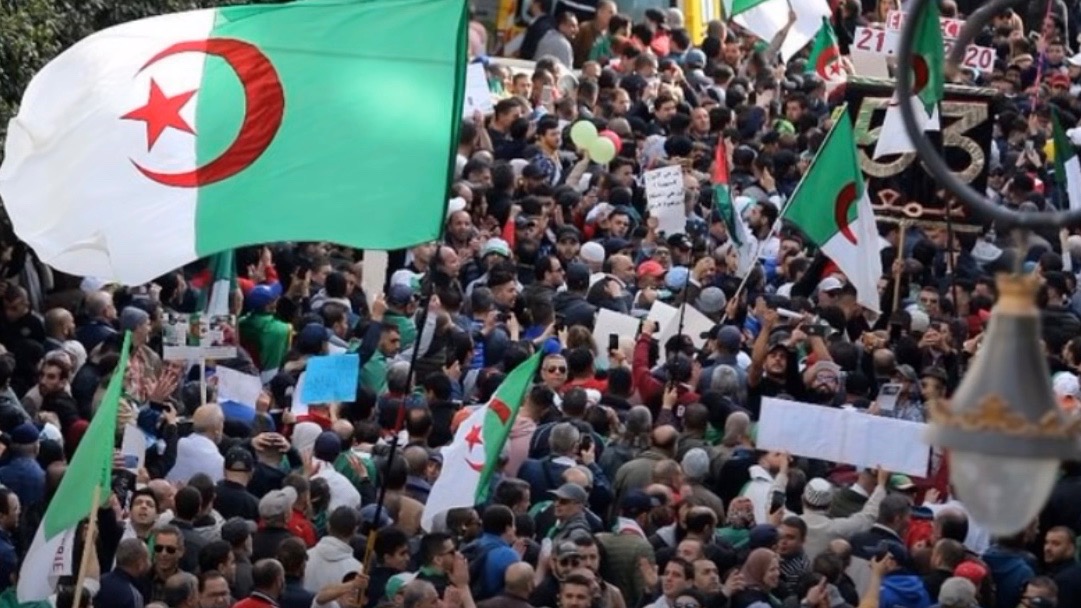Algeria’s Hirak protesters denounced the government’s new measures to ban unauthorized protests and marches in the country. The decision announced by the interior ministry on Sunday, May 9, is being viewed as a method to curb the anti-government protests that have resumed across Algeria after a gap of several months due to COVID-19 restrictions. The ban on ‘unauthorized’ protests also comes just a month before the legislative elections scheduled for June 12. The government reportedly fears that the protests will affect public sentiment regarding the elections and result in a low voter turnout, similar to the last elections which registered a historically low turnout of less than 40%.
As per the interior ministry, all protests from now will require permits from the authorities, for which advance information, such as the names of organizers and participants and the timing of planned demonstrations, must be provided. The interior ministry’s statement adds that “failure to comply with these procedures will result in violating the law and the constitution, which denies the legitimacy of the march, and it will be necessary to deal with it on this basis.” The measures announced on Sunday are part of a clause in the country’s new constitution, recently passed in a nationwide referendum with an extremely low voter participation of 25%.
The Hirak protests broke out in Algeria in February 2019 after the then president, Abdelaziz Bouteflika, announced his intention to seek a fifth term by contesting that year’s presidential elections. The elections were widely believed to be rigged by the authoritarian regime under Bouteflika, who was in power since 1980. The massive Hirak protests forced Bouteflika to resign. However, the movement continued to demand the removal of all remnants of the erstwhile regime, and radical political, social and economic reforms in the country.
Part of the political and business elite of the country, perceived as corrupt and incompetent, had managed to hold on to power through manipulation and systematic repression. The election of Abdelmadjid Tebboune in December 2019 led to intensification of the Hirak protests.
According to the Hirak protesters, the new government has consistently misled and lied about negotiating with them on their demands. While Tebboune has on occasion praised the Hirak protests and the government released some political prisoners unlawfully arrested over the years, nothing substantive has been achieved in terms of the radical reforms demanded by the protesters. Thus, the protests have continued every week on Friday, with the 116th round of demonstrations held last week.
Meanwhile, the government has resorted to a crackdown on the protests. The security forces have broken up several protests in recent weeks using excessive force. The government has also arrested several journalists and restricted freedom of speech and expression, including on social media. Politically motivated charges have been slapped on a large number of activists and protesters, who often face indefinite detentions without trial. The judicial system has also been used to deliver lengthy prison sentences following unfair trials. However, the protests are once again taking place with increased fervor around the country as millions of Algerians suffer from economic and social uncertainty resulting from the COVID-19 pandemic, in addition to years of government corruption and apathy.





